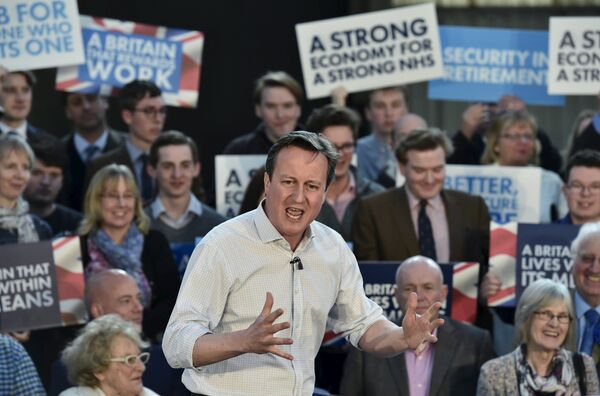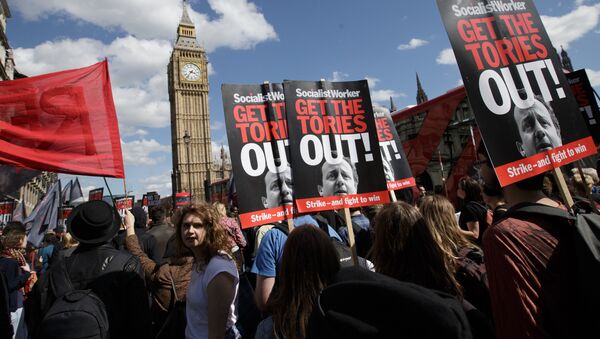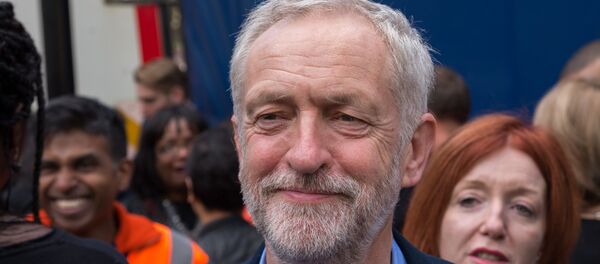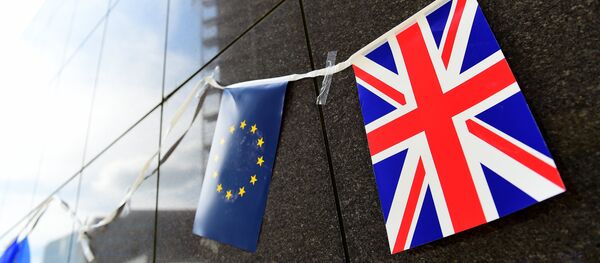On 9th September 1989, Millwall cemented their position at the top of Division One in English football by thrashing Coventry 4-1. The next week though they lost 5-1 and in fact, won only two more games all season, finishing bottom of the entire league.
In September 2014, newly promoted Leicester City pulled off a stunning 5-3 win against Man Utd, but lost their next match to Crystal Palace and didn't win again for another three months. Germany won the 2014 World Cup, beating Argentina 1-0 in the final, but then lost their very next game 4-2, also to Argentina. The phenomenon occurs in politics too.
In 1992 the Tories pulled off an unexpected election victory — but within months the party was in deep trouble with 'Black Wednesday' and poll ratings never picked up for the entire course of the Parliament. Could history be about to repeat itself in 2015?

In May, after they unexpectedly won a majority in the general election, the Tories were understandably jubilant. After five years of being in government with the Lib Dems, suddenly they were free to follow their own star. With the party enjoying the support of most of the media and the backing of the UK's financial and business elites, what could possibly go wrong? Well, quite a lot actually.
Labour, demoralized in May, has been energized by the against-the-odds victory of Jeremy Corbyn in the party's leadership election.
As Corbynmania swept the country there was a huge surge in Labour party membership, which rose by 150,000 between May and September. Since Corbyn became leader, a further 50,000 have joined the party. Labour now have more members than the Conservatives, Lib Dems and the SNP combined.

The Tories are now faced with an opposition who will challenge their policies much more vigorously. While some Conservative supporters thought it would be a jolly good wheeze to join Labour in order to vote for the 'unelectable' Corbyn, wiser heads in the party realize that the veteran left-winger is a real danger to them as he stands a good chance of getting the millions of voters, who deserted the party during the Blair/Brown years, to once again vote for Labour.
The first electoral test for Corbyn-led Labour in England was passed with flying colors — the party gained a local council seat from the Conservatives in north Oxfordshire with a swing of more than 6%. But it's not just a revitalized Labour party that the Tories need to be concerned about.
The double standards which underpin their policy on Syria have been fully exposed by Russia's military intervention against ISIL and their associates. Cameron has been calling for UK air strikes — so how can he now criticize Russia for doing the same and not lose credibility?
The reality is that with the Russian intervention, Cameron's policy on Syria — which always had the toppling of a secular government which was fighting ISIL as its number one objective, is in tatters. The man who has most of the past year warning us about the dangers ISIL and similar groups pose to us — now seems upset that someone is finally taking meaningful action against them. Putin has called Cameron's bluff big time — 'Dave' and his fellow neocons in the Cabinet now look as tarnished as Tony Blair when it comes to foreign policy.
Conservative cuts too will soon be impacting on the daily lives of the party's core voters. It easy to be in favour of 'austerity', when it's people in high-rise council estates who are bearing the brunt of the cuts, but when 'Slasher' Osborne's knife cuts in to 'Middle England', Tory voters will start to look more favorably on the anti-austerity policies of the 'extremist' Jeremy Corbyn.
The Local Government Association fears Tory cuts of USD$5 billion (£3.3bn) this autumn — which if carried through will have a devastating impact on the provision of services such as public libraries, parks and sports and leisure facilities. The privatization of NHS services, and the NHS having to make USD$33.4 billion (£22bn) 'efficiency savings' by 2020, is also like to increase discontent with the government.
Then of course, there's Europe — the issue which tore the Tories apart the last time they had a majority in the House of Commons in the 1990s. Prime Minister David Cameron has pledged to 'fundamentally change' Britain;s relationship with the EU, before an In/Out referendum, to be held in 2016 or 2017. But Donald Tusk, President of the European Council has warned Britain that the fundamental values of the EU were 'not for sale and so are non-negotiable' and that treaty changes was 'mission impossible'.
Don't put your money on 'Dave' emulating Tom Cruise. Not only is it unlikely that the EU will grant the UK the major concessions which Tory Eurospectic MPs are demanding; it doesn't even appear that the UK government is asking for them. This week, the Daily Mail chief politics writer Peter Oborne, claimed that George Osborne, in charge of the negotiations with Europe, "has not tried very hard to negotiate better terms".

Oborne writes of Osborne's trip to Paris earlier this summer to meet the French Foreign Minister and Economy Minister.
"The French were amazed that Osborne did not come armed with a list of British demands. The source tells me: He did not say 'these are the things we need.' He said: 'What can you give us?'."
The strategy of Osborne and Cameron seems to be to get minor concessions from Brussels and sell them as major ones. In other words, to do what Harold Wilson did in 1975, before the referendum on EEC membership that year. But while it worked for the popular pipe-smoking Labour leader forty years ago, it's less likely to work for Cameron. Britain had only been in the EEC for two and a half years at the time of the last public vote on the issue — this time Euro-scepticism is more widespread and has deeper roots.
It's not just his restive backbenchers that Cameron has to worry about, but UKIP, who after a post-election wobble, appear to have got their mojo back, and the fact that Labour, under Jeremy Corbyn is more Euro-sceptic than before the election.
In addition, the pro-Brexit Conservatives campaign for Britain are to be headed by former Tory Chancellor Lord Lawson, a political heavyweight and a most formidable opponent for any Prime Minister. Lawson has already claimed that the concessions Cameron would get from Europe would be "wafer thin". Which is likely to lead to open warfare in the Tory party — between its Europhile and Euro-sceptic factions.
"My sense of the Tory faithful is that they will not put up with the Osborne/Cameron surrender on Europe. Nor will most MPs, nor will some members of the Cabinet. I believe that the Tory Party is in danger of embarking on a civil war on a scale that will make even the Maastricht arguments of the Nineties, bitter though they were, appear trifling by comparison," predicts Peter Oborne.
While we shouldn‘t exaggerate the Tories' problems — they are after all, in power and will be for the next four and a half years — barring political earthquakes — the problems are definitely mounting up — as I predicted here on Sputnik in May.
And here's a sobering thought for those popping the champagne corks at Manchester this week. The last time the Tories went to a party conference celebrating a majority win in a general election was 1992. They didn't win another election for 18 years- and didn't get another majority for 23 years.
If it seems far-fetched that the Tories could be out of power for over a decade following 2020, then its worth remembering that such a dramatic decline would have seemed equally far-fetched in 1992. As indeed would the idea of Leicester City going 13 games without a win after scoring five against Manchester United, or Millwall finishing bottom of the league after that 4-1 win over Coventry.
You can follow Neil Clark on Twitter @NeilClark66







